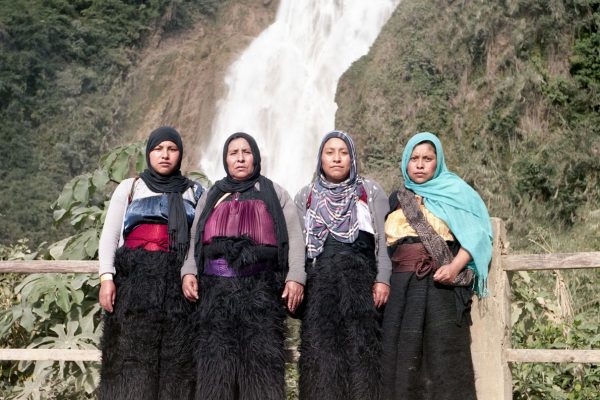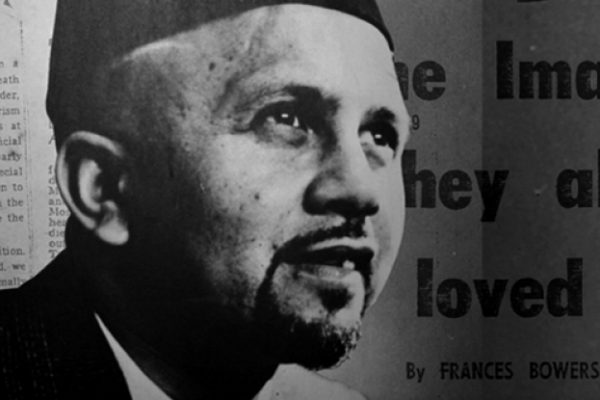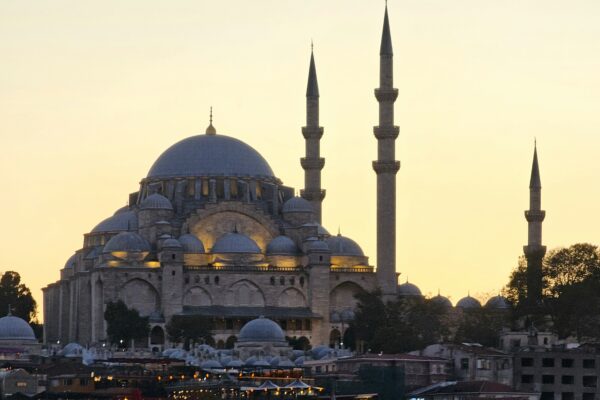On this week’s TMV Podcast, I spoke to Shane Atkinson, an American convert to Islam and self-described “redneck Muslim” because of his Southern Baptist and Mississippi heritage, about his journey to Islam, his role as white “redneck” in the Muslim community, and combating white supremacy.
On this week’s TMV Podcast, I spoke to Shane Atkinson, an American convert to Islam and self-described “redneck Muslim” because of his Southern Baptist and Mississippi heritage, about his journey to Islam, his role as white “redneck” in the Muslim community, and combating white supremacy.
On this week’s TMV Podcast, I spoke to Shane Atkinson, an American convert to Islam and self-described “redneck Muslim” (due to his Southern Baptist and Mississippi heritage) about his journey to Islam, his role as a white “redneck” in the Muslim community, and combating white supremacy.
Listen to our full discussion here:
Shane Atkinson, who grew up in the deep American south in Jackson, Mississippi, was raised in a Southern Baptist background and was the first in his family to go to an integrated school, meaning he went to a school that accepted both black and white students. Shane admits that at the age of 11, he was taught how to tie a noose by his grandfather.
I was socialized to look at the world in a really racist way…people in the South are pretty open about their racism. And a lot of these people are not evil, they probably just want something better than what they have.”
Being in an integrated school, however, meant that Shane did get exposed to those who were seemingly different from him. Making friends with his black classmates eventually led him being exposed for the first time to Islam through 80’s hip-hop, and after reading The Autobiography of Malcolm X, Shane became even more interested in understanding Islam. Islam helped put into perspective his own struggles with the deep-seated racism he was raised with in the south, and Shane eventually converted to Islam.
What makes Shane unique is that he has openly discussed and struggled with his cultural heritage and identity while still being openly Muslim. Understanding his connection with being a “redneck”, and coming from a Southern Baptist background, all while dealing with his white cultural heritage has provided Shane with a unique challenge when it comes to race relations in the Muslim community. Understanding how to develop a non-racist white identity has been a key issue as well, and Shane adamantly believes that Islam can provide the answer to so many problems related to race relations and white supremacy today.
Allah didn’t make you racist…its actually going against your nature to be racist. With Islamic tawbah (repentence), you don’t have to carry that grief with you, you can put it all down, and you can contribute to making the world a more just place.”
Shane believes that Islam provides the medicine so desperately needed for what a lot of white liberal people are struggling with, and played a big role in his own life when it came to helping him deal with his cultural identity and heritage. A common struggle that many who convert to Islam face, Shane struggled with how to navigate being Muslim and still being himself. The term “Redneck Muslim”, the title of the PBS documentary he was featured in, has become symbolic in Shane’s journey through bridging the gap between different cultural backgrounds within the Muslim community. No one is born racist, Shane believes and hopes that by coming back to our roots of the oneness of humanity, more people will come together as a united community.
You can be proud of whatever heritage, as long as that’s built on an understanding of the onness of humanity.”
Shane also admits that it might be easier for him to come face to face with racist thinkers and communities because of the very fact that he is indeed white. Dealing with white supremacy, and with the issues surrounding deep-seated racism within our own Muslim communities plays a large role in Shane’s activism in the United States. Speaking at different mosques across the American south, including prominent Nation of Islam mosques, has opened up a world of beautiful diversity to Shane. Admitting that the most interesting conversations happen with those who are seemingly different from you, Shane encourages more Muslims to have these difficult conversations and begin the process of breaking down racial divides in all communities. Being able to remain civil, and not throw away your “manners and morals”, remains a key element in dealing with people you may disagree with according to Shane. While it remains easy to quickly demonize people you disagree with, we need to remember to respond in a way that would please Allah, Shane believes.
Allah can change people’s hearts…I’m proof that He can change hearts. And people are starting to realize that we do need each other.”
Combating racism and dealing with his own unique cultural heritage as a convert to Islam has given Shane an important mission not only within the deep American south but within the larger Muslim community as well: how do we understand our own biases and racism first before pointing out the larger systemic issues of racism in our lives? By remembering Allah constantly in our lives, and remembering that we all have a shared ancestry, Shane hopes that we can all come to a shared conclusion of inclusivity, love, and a celebration of the oneness of our humanity.





